Key Takeaways
- Puppy breath is the naturally sweet, milk-like scent that occurs in puppies under 4-6 months old due to their milk-based diet and undeveloped oral bacteria
- This distinctive aroma typically disappears around 4-6 months when adult teeth emerge and puppies transition to solid food
- Sweet puppy breath is normal and healthy, but persistent foul odors may indicate dental issues or health problems requiring veterinary attention
- Starting dental care early with gentle brushing, appropriate chew toys, and quality diet helps maintain fresh breath as puppies mature
- Regular veterinary checkups and proper oral hygiene prevent the development of periodontal disease that affects over two-thirds of dogs by age three
Puppy breath is the naturally sweet, milk-like scent that occurs in puppies under 4-6 months old due to their milk-based diet and undeveloped oral bacteria
This distinctive aroma typically disappears around 4-6 months when adult teeth emerge and puppies transition to solid food
Sweet puppy breath is normal and healthy, but persistent foul odors may indicate dental issues or health problems requiring veterinary attention
Starting dental care early with gentle brushing, appropriate chew toys, and quality diet helps maintain fresh breath as puppies mature
Regular veterinary checkups and proper oral hygiene prevent the development of periodontal disease that affects over two-thirds of dogs by age three
That sweet, warm scent from your puppy’s mouth isn’t just adorable—it’s a fascinating glimpse into canine development. Most dog owners love puppy breath for good reason: it signals a healthy, growing pup with a clean oral environment that won’t last forever. Understanding why your new puppy has this distinctive odor and how to maintain fresh breath as they mature helps you provide the best care during these crucial early months.
The smell of puppy breath represents a brief window when your pup’s mouth remains relatively free from the bacteria and dietary factors that create bad breath in adult dogs. This natural phenomenon deserves attention not just for its pleasant aroma, but as a foundation for lifelong oral health.
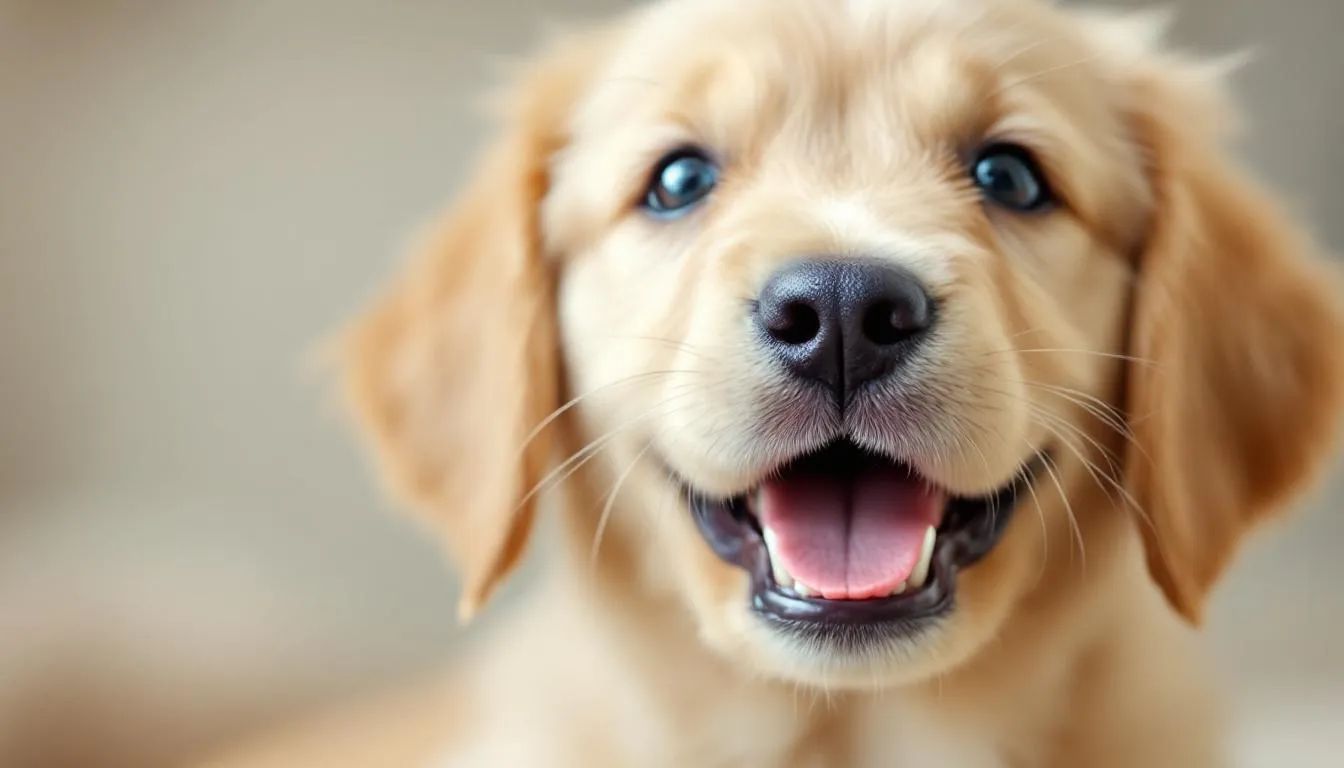

What Is Puppy Breath?
Puppy breath is the sweet, warm aroma that emanates from young puppies’ mouths, often compared to vanilla, honey, or fresh-baked bread. A puppy's breath can serve as an indicator of health and development, reflecting the puppy's stage of growth and oral hygiene. This distinctive odor occurs specifically in puppies during their first few months of life, before their oral environment develops the complex bacterial colonies found in adult dog mouths.
The scientific explanation centers on the puppy’s mouth starting as essentially a clean slate. Unlike older dogs, puppies haven’t had time to accumulate the odor causing bacteria, plaque buildup, or tartar that typically create bad breath. The pleasant or unpleasant scent of both puppy and adult dog breath is directly related to the biological matter present in the mouth, such as bacteria and plaque. Their oral microbiome remains simple and undeveloped, lacking the anaerobic bacteria that break down food particles and produce malodorous sulfur compounds in adult dogs.
This clean oral environment creates the perfect conditions for that characteristic sweet smell. The puppy’s breath reflects their simple diet and healthy gums without the complications of periodontal disease, dental disease, or poor diet that commonly affect most dogs as they age.
When you compare puppy breath to what is commonly known as dog's breath in adults, the difference becomes immediately apparent. Adult dogs often struggle with bad breath due to accumulated bacteria, food particles stuck between teeth, and the natural progression toward gum disease that affects the majority of dogs by age three. Young puppies simply haven’t reached this point in their development.
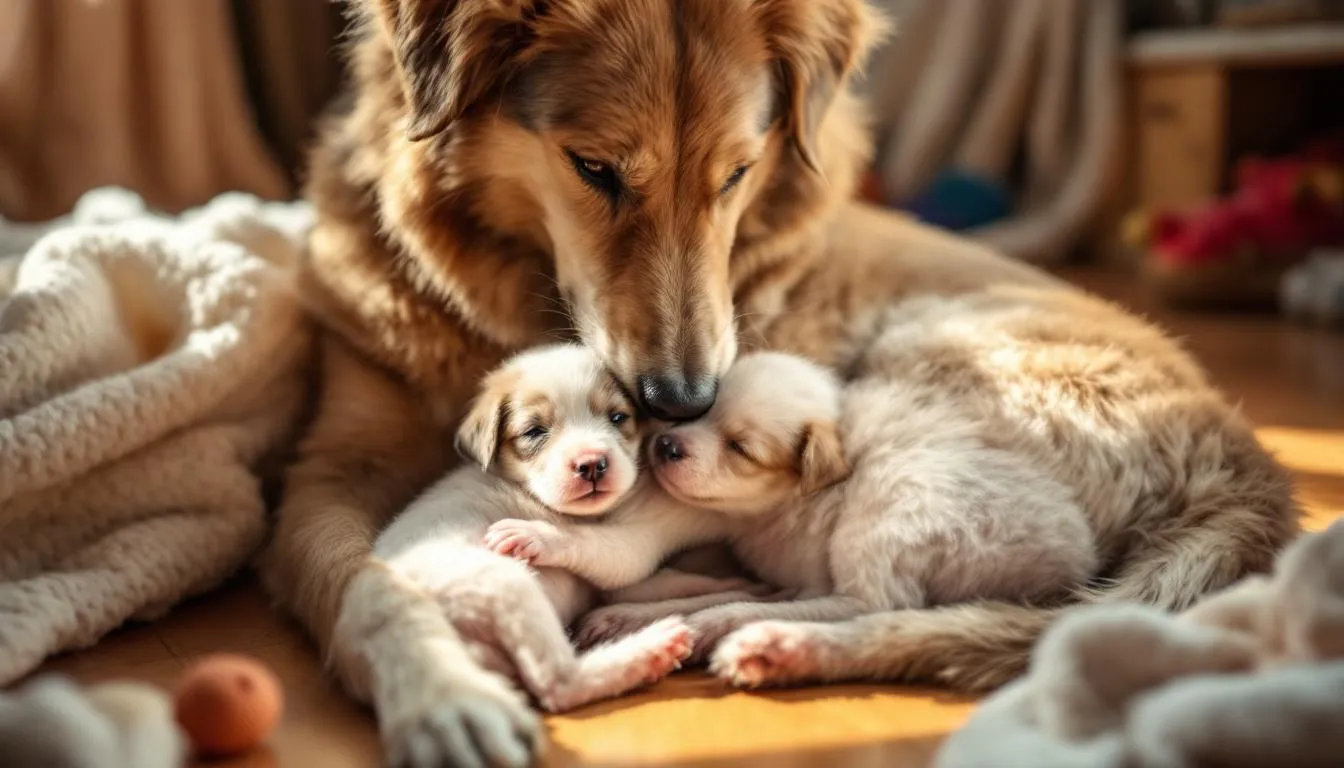

Why Puppy Breath Smells Sweet
The sweet smell comes primarily from your puppy’s diet of mother’s milk during their earliest weeks. This milk-based nutrition creates specific metabolic byproducts that contribute to the pleasant aroma. Mother’s milk is high in fat and protein, and the enzymatic digestion of these nutrients in the developing digestive system produces the sweet scent that characterizes healthy puppy breath.
The puppy’s stomach and developing esophagus also play a role. Some veterinarians believe that slight gas leaking from the developing esophagus contributes to the unique scent, though this theory remains less substantiated than the primary dietary explanations. If you have noticed a change in your puppy's breath, it may be worth monitoring for other signs of digestive or oral health issues, as these can sometimes cause puppy breath to smell bad.
Clean teeth without any plaque or tartar accumulation allow the natural sweetness to shine through. The absence of strong-smelling foods like meat or processed proteins found in many adult dog foods means there are no competing odors to mask or alter the natural breath scent.
The simple digestive system of young puppies processes only milk nutrients during their first several weeks. This creates an ideal internal environment that supports the sweet breath phenomenon. Unlike adult dogs who consume varied diets that can contribute to bad odors, puppies maintain this dietary simplicity that preserves their fresh breath. While puppy breath is usually sweet, some owners have noticed that puppy breath can smell bad if there are underlying health or dietary issues.
Specific mouth bacteria present in young puppies differ significantly from adult dogs. The bacterial colonies that eventually develop and cause bad breath simply haven’t established themselves yet, leaving room for the natural sweetness to dominate the puppy’s breath.
How Long Does Puppy Breath Last?
The typical timeline for sweet puppy breath spans approximately 3-6 months, though individual variations exist based on breed and development rate. This age range corresponds directly with major developmental milestones that transform the puppy’s oral environment.
The connection between adult teeth emergence and breath changes marks the most significant factor in puppy breath duration. As puppies begin to teethe and their adult teeth start to appear, changes in the oral environment and the development of the pup's teeth contribute to shifts in breath odor. The oral environment becomes more complex and hospitable to the bacteria that eventually cause less pleasant breath odors.
Transitioning from milk to solid food dramatically impacts the oral environment. When puppies start eating puppy food around 4-6 weeks of age, their mouths are exposed to new proteins, carbohydrates, and textures that can harbor bacteria and create food particles between teeth. This dietary shift gradually replaces the simple milk-based system that created the original sweet breath.
The teething process itself affects breath smell as gum bleeding and metallic scents from pooled blood temporarily alter the puppy’s natural breath odor. During active teething periods, you might notice that your puppy’s breath becomes less consistently sweet or develops temporary metallic undertones.
Individual variations in puppy breath duration depend on several factors including genetics, breed size, and overall health. Larger breeds may lose their puppy breath slightly earlier than smaller breeds due to faster dental development, while some puppies naturally maintain their sweet breath longer than others.
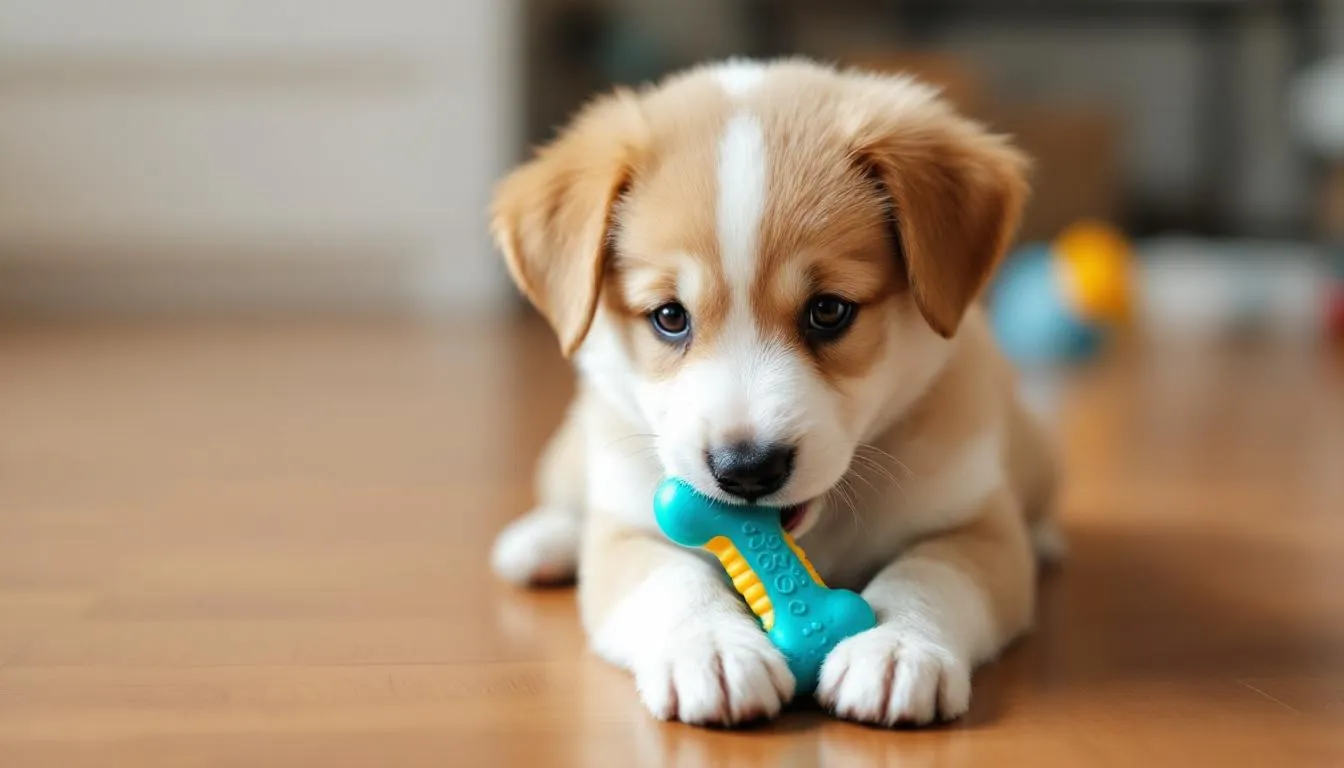

Puppy Teething and Breath Changes
Understanding the teething timeline helps explain why puppy breath changes. Puppies start developing their first baby teeth around 2-3 weeks of age, with most pups having their complete set of 28 baby teeth by six weeks. This early teething phase typically doesn’t disrupt the sweet breath significantly.
The major transition occurs when baby teeth begin falling out around 3-4 months old. During this phase, puppies experience gum inflammation, minor bleeding, and the gradual emergence of their 42 adult teeth. This process usually completes by six months of age, marking the end of the classic puppy breath period.
How teething causes temporary bad breath relates directly to the physical changes in the puppy’s mouth. Gum bleeding from loose baby teeth and emerging adult teeth can create a metallic smell from pooled blood. Inflamed gums may harbor bacteria differently than healthy tissue, temporarily altering the breath’s character.
The developing esophagus continues maturing during this period, potentially contributing to breath changes as the puppy’s digestive system becomes more complex. Gas leaking from the maturing esophagus may add different notes to the breath that weren’t present during the pure milk-feeding phase.
This transition period requires patience and attention. While temporary breath changes during teething are normal, persistent foul odors or signs of excessive discomfort warrant veterinary evaluation to ensure proper tooth development and oral health.
When Puppy Breath Becomes Concerning
Not all changes in your puppy’s breath indicate normal development. Persistent foul odors that don’t resolve within a few days, excessive drooling, or visible gum swelling beyond normal teething inflammation can signal health issues requiring professional attention.
Bad puppy breath that smells particularly strong or develops suddenly may indicate dental problems, infections, or other health concerns. Unlike the gradual transition from sweet to neutral breath that occurs naturally, concerning breath changes happen quickly and intensely.
Signs that warrant veterinary consultation include breath that smells consistently terrible rather than just different, visible infection around the gum line, difficulty eating despite apparent hunger, or excessive pawing at the mouth. Monitoring your puppy's breath is an important part of caring for your pet and can provide early clues about your pup's health. These symptoms may indicate impacted teeth, serious infections, or underlying health issues affecting your pup’s health overall.
Poor diet can also contribute to bad breath in puppies. Dogs that eat poop, consume inappropriate human food, or have digestive problems may develop breath issues unrelated to normal teething. Eating poop particularly creates persistent bad odors that require behavioral intervention and thorough oral cleaning.
Kidney disease, though rare in young puppies, can cause distinctive breath odors that differ from typical dental issues. Any breath that smells unusually sweet in a concerning way, metallic beyond normal teething, or consistently foul requires professional evaluation to rule out systemic health issues.
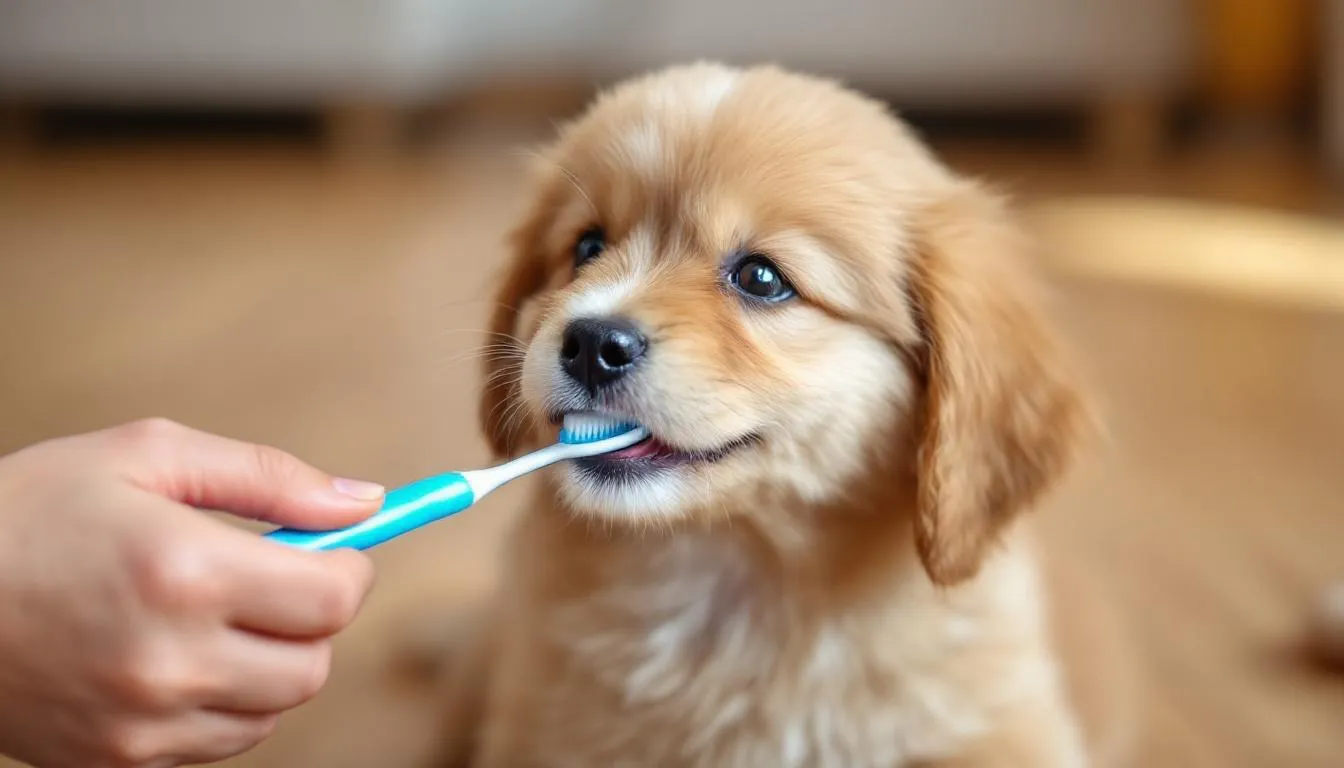

Maintaining Fresh Puppy Breath
Starting tooth brushing between 8-12 weeks gives your puppy the best foundation for lifelong oral health. It’s important to start brushing at this early age to help your puppy become comfortable with the process and to establish a healthy routine for their dog's teeth. Begin with dog-specific toothpaste that contains safe enzymes designed for canine use. Never use human toothpaste, as it contains xylitol and other ingredients toxic to dogs.
The gradual introduction technique works best for most puppies. Start by simply lifting your pup’s lips to examine their teeth, offering treats and praise for cooperation. Progress to touching the teeth with your finger, then introducing a finger brush or soft toothbrush designed for puppies.
Choose quiet, relaxed environments for dental care sessions. After a play session when your puppy is slightly tired but not overstimulated often works well. Keep initial sessions short—just a few seconds of actual brushing—and gradually increase duration as your puppy becomes comfortable with the routine.
Use angled dog toothbrushes or finger brushes specifically designed for puppy safety. These tools help you reach the important areas without accidentally injuring delicate gums or baby teeth. Cleaning your dog's teeth regularly is essential to prevent tartar buildup and other dental issues. The goal is building positive associations with dental care rather than achieving perfect cleaning initially.
Daily brushing represents the ideal, but minimum 3+ times per week provides significant benefits for maintaining oral health. Consistency matters more than perfection—regular brief sessions outperform occasional lengthy ones for both oral health and training purposes. Regular dental care benefits not just puppies but all pets, helping to maintain fresh breath and oral health throughout their lives.
Dental Chew Toys and Their Benefits
Chew toys serve multiple functions during the teething phase and beyond. They provide appropriate outlets for natural chewing instincts while supporting oral health through mechanical cleaning action. The key lies in choosing toys appropriate for your puppy’s age and size.
Orka Mini Dental Chews work well for young puppies, providing gentle gum massage and helping remove early plaque formation. These toys offer the right texture for developing teeth without being so hard they could damage baby teeth or cause injury.
Cotton rope toys create natural teeth cleaning action as puppies chew and pull on the fibers. The rope texture helps scrape away food particles and provides satisfying resistance for teething puppies. Always supervise rope toy use and replace them when fibers become loose or worn.
As puppies mature and their adult teeth emerge, transitioning to tougher chews like Orka Dental Links provides continued oral health support. These products are specifically designed to help prevent plaque buildup and tartar formation as your dog ages.
Look for VOHC-approved products that meet scientific standards for plaque and tartar control. The Veterinary Oral Health Council evaluates dental products based on their actual effectiveness, providing reliable guidance for choosing toys that truly support oral health rather than just marketing claims.
Nutrition and Diet Impact
High-quality diet plays a crucial role in maintaining a healthy oral environment. Balanced nutrition supports healthy gums, proper tooth development, and overall oral health that contributes to fresh breath throughout your dog’s life.
Foods and treats approved by the Veterinary Oral Health Council offer proven benefits for dental health. These products undergo scientific testing to demonstrate their effectiveness in reducing plaque and tartar formation compared to regular food alone.
Balanced diet prevents many dental issues before they start. Proper nutrition supports strong tooth enamel, healthy gum tissue, and robust immune function that helps fight off oral infections. Quality protein sources and appropriate vitamins contribute to overall oral health development.
Avoid foods that contribute to bad breath development, including table scraps, high-sugar treats, or inappropriate human food. These items can disrupt the oral environment and contribute to bacterial growth that causes bad odors and dental disease.
The connection between proper nutrition and fresh breath maintenance extends throughout your dog’s life. Early dietary habits established during puppyhood often persist into adulthood, making this period crucial for setting positive patterns.
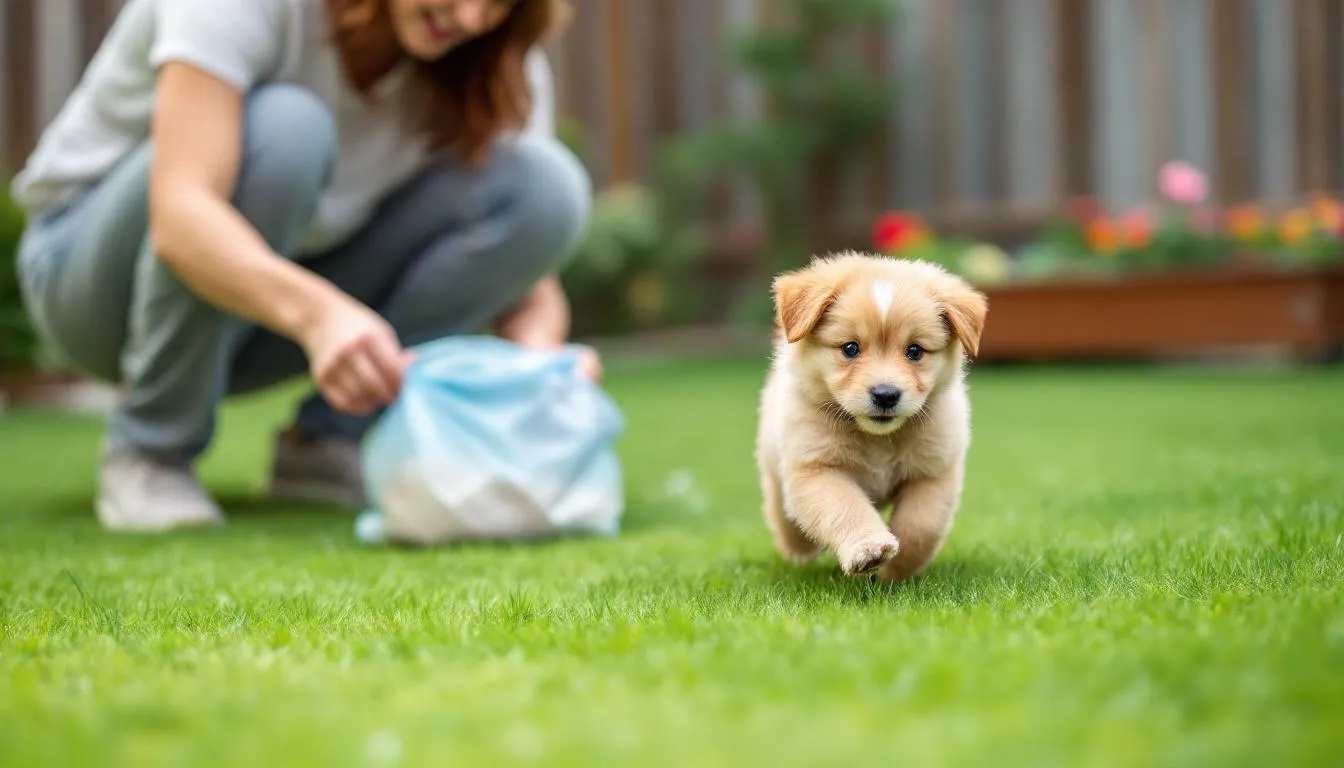

Preventing Common Breath Problems
Eating poop represents one of the most common causes of bad breath in puppies. This behavior, while disgusting to humans, often stems from curiosity, boredom, or nutritional factors. Preventing access and teaching appropriate alternatives helps maintain fresh breath.
Teaching “leave it” commands provides essential outdoor safety while protecting oral hygiene. Start indoors with treats, teaching your puppy to resist tempting items on command. This skill transfers to outdoor situations where you can prevent consumption of inappropriate materials.
Prompt cleanup after potty breaks eliminates temptation before it becomes a problem. The faster you remove waste, the less opportunity your puppy has to investigate or consume it. This simple prevention strategy saves significant effort compared to addressing the behavior after it’s established.
Address potential nutritional deficiencies that may contribute to poop eating behavior. Some puppies consume feces due to digestive enzyme deficiencies or inadequate nutrition. Quality puppy food and veterinary guidance help ensure proper nutritional balance.
Regular veterinary checkups provide professional monitoring of oral health development. Your veterinarian can identify potential issues early and provide guidance specific to your puppy’s breed, size, and individual needs.
Common Mistakes to Avoid
Caring for your puppy’s breath and oral health is a rewarding part of raising a happy, healthy dog—but even the most loving owners can make a few missteps along the way. By steering clear of these common mistakes, you’ll help your pup enjoy fresh breath, strong teeth, and a lifetime of healthy smiles.
One of the biggest mistakes is waiting too long to start tooth brushing. Puppies adapt quickly, so introducing gentle brushing as early as 8-12 weeks helps them accept this routine as a normal part of life. Delaying this habit can make it harder for your puppy to get used to having their teeth cleaned, increasing the risk of plaque buildup and periodontal disease as they grow.
Another pitfall is using the wrong products. Human toothpaste can be harmful to dogs, and adult dog toothbrushes may be too large or harsh for a puppy’s mouth. Always choose a dog-specific toothpaste and a soft brush designed for puppies. The right chew toys are also essential—avoid toys that are too hard or abrasive, as these can damage your puppy’s delicate teeth and gums. Instead, opt for toys that are gentle yet effective at supporting oral health.
Diet plays a crucial role in your puppy’s breath and oral health. Feeding your pup a balanced diet with high-quality puppy food supports healthy gums and teeth, while table scraps or a poor diet can lead to bad breath and other health issues. Monitor your puppy’s eating habits and avoid giving them foods that aren’t formulated for their age and nutritional needs.
Eating poop (coprophagia) is another issue that can cause persistent bad breath and even lead to health problems. If you notice your puppy eating poop, don’t ignore it—consult your veterinarian to rule out any underlying health issues and get advice on how to curb this behavior. Prompt cleanup and training can make a big difference.
It’s also important not to overlook signs of bad breath or oral discomfort. If your puppy’s breath smells bad, or you notice symptoms like swollen gums, excessive drooling, or reluctance to eat, don’t wait—schedule a visit with your veterinarian. Early intervention can prevent minor issues from turning into serious gum disease or other dental problems.
Finally, skipping regular veterinary check-ups is a mistake that can allow oral health issues to go unnoticed. Routine exams help catch problems like gum disease or tartar buildup before they affect your puppy’s health and breath.
By avoiding these common mistakes—starting tooth brushing early, using the right products, feeding a balanced diet, addressing eating poop, watching for signs of trouble, and keeping up with vet visits—you’ll support your puppy’s oral health and keep their breath fresh. Remember, a puppy’s breath is more than just a sweet smell; it’s a sign of their overall wellbeing. With a little care and attention, you’ll set your pup up for a lifetime of healthy teeth and happy, tail-wagging moments.
Long-term Oral Health Strategy
Building positive associations with dental care from puppyhood creates lifelong benefits. Puppies who learn to accept tooth brushing, mouth handling, and dental examinations develop into adult dogs who cooperate with necessary oral health care.
Preventing periodontal disease that affects two-thirds of dogs over three years starts with early intervention. The habits you establish during the puppy breath phase directly impact your dog’s oral health throughout their life.
Extending fresh breath benefits through consistent care requires ongoing commitment beyond the puppy phase. While the characteristic sweet puppy breath disappears naturally, excellent oral hygiene can maintain pleasant breath and prevent the severe dental issues common in adult dogs.
Professional dental cleanings and veterinary monitoring become increasingly important as your dog ages. Establishing a relationship with a veterinarian who understands your commitment to preventive care helps ensure appropriate timing for professional interventions.
How early dental habits impact lifelong oral health cannot be overstated. Dogs who receive consistent oral care from puppyhood typically require fewer dental procedures, experience less pain from dental disease, and maintain better overall health throughout their lives.
The investment in early dental care pays dividends in reduced veterinary costs, improved quality of life, and the simple pleasure of enjoying fresh breath and clean teeth in your beloved companion. Starting during the puppy breath phase gives you the best foundation for success.
Remember that oral health connects to overall wellbeing. Dogs with healthy mouths eat better, feel more comfortable, and often live longer, healthier lives. The sweet puppy breath phase represents just the beginning of a lifetime commitment to your dog’s oral health and happiness.
FAQ
Is it normal for my 8-week-old puppy’s breath to smell metallic during teething?
Yes, metallic or slightly bloody breath is normal during teething due to gum irritation and minor bleeding from emerging baby teeth. However, persistent strong metallic odors lasting more than a few days should be evaluated by a veterinarian to rule out injury or infection.
Can I use human toothpaste on my puppy?
Never use human toothpaste on puppies as it contains xylitol and other ingredients toxic to dogs. Always use veterinary-approved dog toothpaste with safe enzymes specifically formulated for canines. These products are designed to be safely swallowed and provide appropriate cleaning action.
My puppy’s breath suddenly smells terrible at 5 months old - is this normal?
Sudden bad breath around 5 months may indicate food stuck between adult teeth, developing dental issues, or complications from the transition to solid food. While some breath changes are normal during this developmental period, persistent terrible odors warrant veterinary consultation to identify and address potential problems.
How often should I brush my puppy’s teeth to maintain oral health?
Daily brushing is ideal for optimal oral health, but a minimum of 3 times per week provides significant benefits. Start with short sessions and gradually increase duration as your puppy becomes comfortable with the routine. Consistency matters more than session length during the training phase.
Will my puppy’s sweet breath ever come back after it disappears?
Sweet puppy breath naturally fades permanently around 4-6 months as adult teeth emerge and diet changes to solid food. While this distinctive aroma won’t return, excellent dental care including regular brushing, appropriate chew toys, and quality nutrition can maintain fresh, pleasant breath throughout your dog’s life.
FAQ
Is it normal for my 8-week-old puppy’s breath to smell metallic during teething?
Yes, metallic or slightly bloody breath is normal during teething due to gum irritation and minor bleeding from emerging baby teeth. However, persistent strong metallic odors lasting more than a few days should be evaluated by a veterinarian to rule out injury or infection.
Can I use human toothpaste on my puppy?
Never use human toothpaste on puppies as it contains xylitol and other ingredients toxic to dogs. Always use veterinary-approved dog toothpaste with safe enzymes specifically formulated for canines. These products are designed to be safely swallowed and provide appropriate cleaning action.
My puppy’s breath suddenly smells terrible at 5 months old - is this normal?
Sudden bad breath around 5 months may indicate food stuck between adult teeth, developing dental issues, or complications from the transition to solid food. While some breath changes are normal during this developmental period, persistent terrible odors warrant veterinary consultation to identify and address potential problems.
How often should I brush my puppy’s teeth to maintain oral health?
Daily brushing is ideal for optimal oral health, but a minimum of 3 times per week provides significant benefits. Start with short sessions and gradually increase duration as your puppy becomes comfortable with the routine. Consistency matters more than session length during the training phase.
Will my puppy’s sweet breath ever come back after it disappears?
Sweet puppy breath naturally fades permanently around 4-6 months as adult teeth emerge and diet changes to solid food. While this distinctive aroma won’t return, excellent dental care including regular brushing, appropriate chew toys, and quality nutrition can maintain fresh, pleasant breath throughout your dog’s life.






